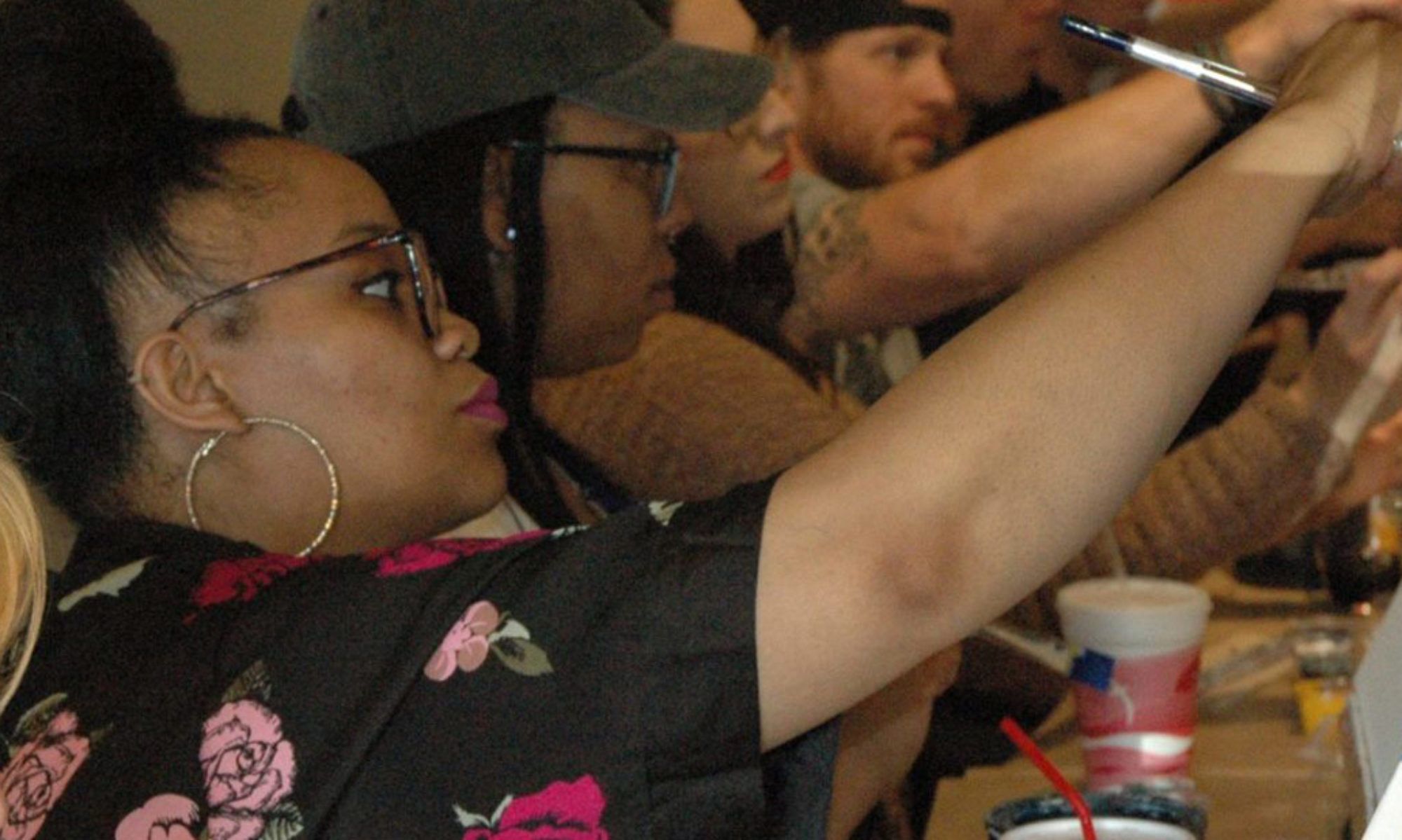We’re sitting at Sangster International Airport in Montego Bay, Jamaica after wrapping up a stay in Ochos Rios. Since we have a few minutes before boarding will begin, I thought it might be a good time to write down some thoughts. They won’t be really art related, but maybe just more life related.
The first and foremost thing that sits with me and will remain a constant friend who will always put a smile on my face is the friendliness of the people of Jamaica. I knew this would be true because of all I’d read about this country. Nearly every writing expressed how friendly the Jamaican people are, and every writing is true. I rarely ran into a Jamaican who would not return a smile, or a Wahgwaan, or Yeah Mon! And for the entire week, I wondered how this could be within a country that has an unemployment rate, that even as recently as 2017, was in the double digits. In 2019, thankfully for the people of Jamaica, the unemployment rate sits at about 8.4%, an all time low for the country.
Even with a decreasing unemployment rate, the average monthly salary for anyone working in Jamaica is $16,667 JMD (just $138.72 in USD). Hotel staff, in particular, work 12 to 14 hours per day, 6 days per week. So, again, I wondered, why is there this appearance of seemingly genuine happiness and helpfulness. Yes, the Jamaican people understand that tourism is a major part of the life blood of the country, but that could only go so far, right?
On our last day, during our shuttle ride to Sangster, I finally found the answer. Our driver, Winston, one of the most intelligent people I’ve ever met in my life by the way, gave us a brief “nutshell” version of Jamaican history. Within that nutshell, he told us about the Taíno, also known as that Arawak (Jamaica’s indigineous people – and due to the Spanish invasion a couple of years after Columbus “discovered” Jamaica, were wiped out – https://jis.gov.jm/information/jamaican-history/).
One of the things that bothers me about this is that it’s the same story we learn in grade school that gets whitewashed by the history books. We learn that Columbus sailed the ocean blue in 1492 and discovered America. What we aren’t told is that he enslaved indiginous populations, was responsible for both himself and his men murdering and raping (women and children) and in some cases was the catalyst that caused the genocide of various indiginous populations.
But the thing that caught my attention and gave me the answer to why the people of Jamaica seem to be so happy is this: In Jamaica, children are taught from a young age that the idea of contentment is more important than wealth. He said, “If I have enough money and buy an airplane, who’s to say my friend won’t buy two spaceships? There will always be someone who does it bigger or spends more or has more, so why let that bother you?” I think the happiness of the people of Jamaica truly lies in this idea of being content no matter your station.
Anyway, what I’m getting at is that despite the troubled history, the political problems, and the poverty that have plagued this beautiful island, the people of Jamaica find contentment regardless of their station in life. I wish this were the case for those of us living in more “developed” countries. It also makes me really re-think how I’m living my life. Am I pursuing good or just the next “thing” that I think I need? Am I living a full life as opposed to living a life full of things? Have I focused on friends and relationships more than stuff? For me, personally, no, but I’m trying. Andrea has helped a lot with this in that she always places greater weight on making memories than she does things.
As I close this out, my own personal challenge will be to learn to be content in life, and to not only focus on making good memories, but also help others make good memories. Whether that’s through painting down at Uncorked Inspiration, or by simply hanging out with friends and family. I hope you’ll think about these things as well.
So, as they say in Jamaica when they’re taking off but know they’ll see you the next day, “Mi a leff, inna di morrows, mon.”
